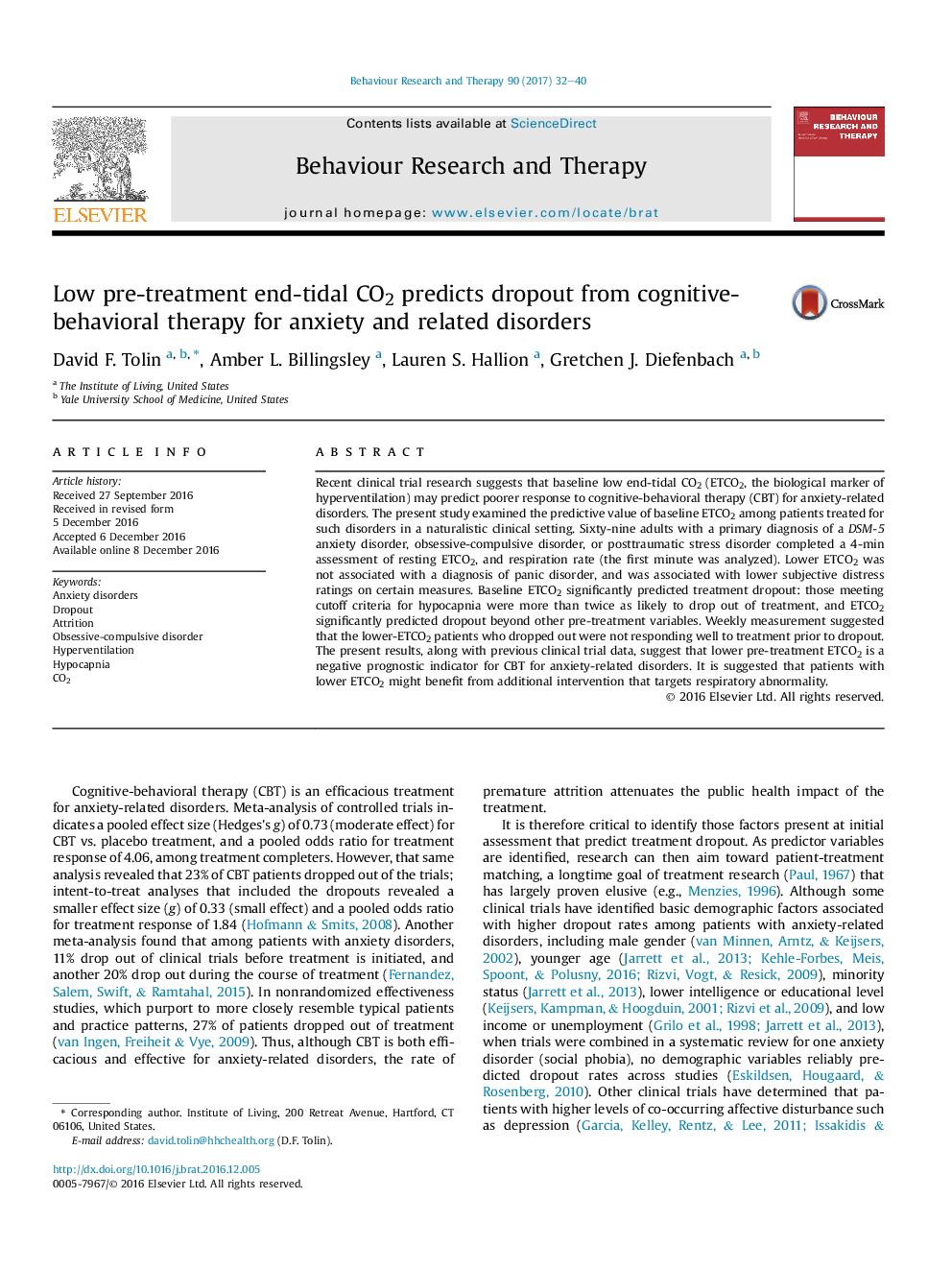| Article ID | Journal | Published Year | Pages | File Type |
|---|---|---|---|---|
| 5038268 | Behaviour Research and Therapy | 2017 | 9 Pages |
â¢Patients with anxiety and related disorders were assessed for end-tidal CO2 (ETCO2) prior to receiving cognitive-behavioral therapy (CBT) in an outpatient clinic.â¢Lower pre-treatment ETCO2 predicted premature dropout from CBT.â¢Hyperventilation, as evidenced by lower ETCO2, is a poor prognostic indicator for CBT.
Recent clinical trial research suggests that baseline low end-tidal CO2 (ETCO2, the biological marker of hyperventilation) may predict poorer response to cognitive-behavioral therapy (CBT) for anxiety-related disorders. The present study examined the predictive value of baseline ETCO2 among patients treated for such disorders in a naturalistic clinical setting. Sixty-nine adults with a primary diagnosis of a DSM-5 anxiety disorder, obsessive-compulsive disorder, or posttraumatic stress disorder completed a 4-min assessment of resting ETCO2, and respiration rate (the first minute was analyzed). Lower ETCO2 was not associated with a diagnosis of panic disorder, and was associated with lower subjective distress ratings on certain measures. Baseline ETCO2 significantly predicted treatment dropout: those meeting cutoff criteria for hypocapnia were more than twice as likely to drop out of treatment, and ETCO2 significantly predicted dropout beyond other pre-treatment variables. Weekly measurement suggested that the lower-ETCO2 patients who dropped out were not responding well to treatment prior to dropout. The present results, along with previous clinical trial data, suggest that lower pre-treatment ETCO2 is a negative prognostic indicator for CBT for anxiety-related disorders. It is suggested that patients with lower ETCO2 might benefit from additional intervention that targets respiratory abnormality.
